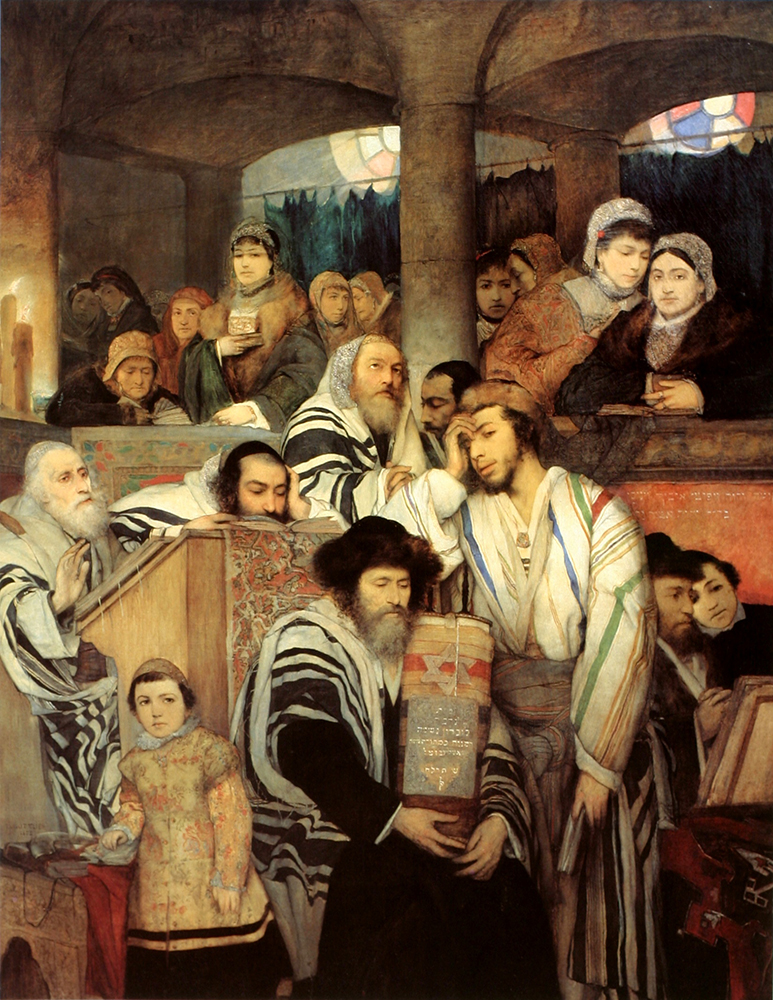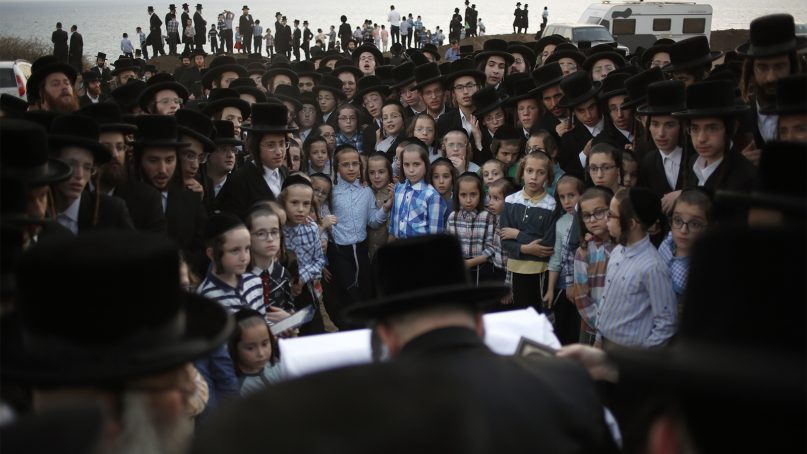(RNS) — Tuesday night (Sept. 18) begins Yom Kippur, the day on the Jewish calendar when Jews recite the following confession 10 times: “We have sinned against you, God, of our own free will: by hardening our hearts, speaking openly and privately, knowingly and deceitfully, in our speech with impure lips, giving in to our worst urges, speaking ill of our neighbors, throwing off restraints, ensnaring our neighbors, taking false oaths, and in baseless hatred.”
These are among the 44 sins Jews recount as we go twice through the Hebrew alphabet of 22 letters, a doubled “A to Z” of our sins. We haven’t each committed every sin on the list, but we surely have every base covered as an entire congregation — and then some.
This Yom Kippur, I’m struck by how many of these 44 sins are about vilifying our neighbors and practicing bigotry.
It takes a long time for us to break through our natural resistance and self-righteousness to confess our wrongs. We take all day because we have spent an entire year speaking ill of our neighbors. It well may take the whole year to make right our iniquities. First, we must own that we have hurt others.
The Jewish community is not alone in committing such sins, but the truth is that all Americans could do with an accounting of our national transgressions. As a country, we should all beat our breasts this Yom Kippur — indeed, every day.
We insult religious minorities – especially, in the past year, American Muslims – and rail against those who are guilty of not being just like us.

“Jews Praying in the Synagogue on Yom Kippur,” by Maurycy Gottlieb, from 1878. Image courtesy of Creative Commons
The rise of religious bigotry comes at a time of increased political polarization and overt white supremacism. The negative rhetoric flows from the highest offices in the land, bathing us in the wickedness of hating our fellow citizens. Like Pharaoh of Egypt, our leaders refer to human beings as animals infesting the land.
Without owning up to our transgressions, as Yom Kippur demands, we are unable to repent of them. But it is not enough to confess and beat our chests. We have to ask for forgiveness. We must reach out to those we have marginalized, lied about, dehumanized, and offer a sincere apology.
This is not easy. It is especially hard since the others we have degraded may not want our apologies. What then? Well, Jewish practice requires us to beg their forgiveness again. And again.
There is more. True repentance means that when presented with the same occasion to say nasty things, to descend to the least common denominator, to tweet out bile, to spew hatred as a political tactic, we do not commit the same sin against our neighbor once more.
We must renounce the politics of division. We must reject scoring points by beating up on the Other. We must run the risk of losing, yes, losing an election, losing power, losing office, and instead raise up our fellow Americans and all who aspire to be part of this great country.
If we want God’s blessings, we should heed this scripture of American civil religion: “We hold these truths to be self-evident: that all men are created equal; that they are endowed by their Creator with certain unalienable rights; that among these are life, liberty, and the pursuit of happiness.”
Between now and Nov. 6, we have a great task ahead of us as a nation. We must confess our sins toward our fellow citizens, we must seek to redress their grievances against us, and we must resolve not to pay heed to the worst demons of our nature.
Let the season of repentance be our preparation for the great work of loving our country and loving each of our fellow Americans as we engage in the sacred rite of voting.
(Rabbi Burton L. Visotzky is the Appleman Professor of Midrash and Interreligious Studies at the Jewish Theological Seminary, where he directs the Milstein Center for Interreligious Dialogue. The views expressed in this commentary do not necessarily represent those of Religion News Service.)





